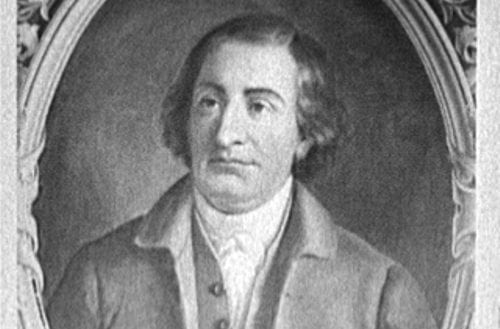

Conversation-based seminars for collegial PD, one-day and multi-day seminars, graduate credit seminars (MA degree), online and in-person.


Dear Sir:
Your favor of the 11th. did not come to my hand till the 24th; and since then, till now, I have been too much indisposed to acknowledge the receipt of it.
To what cause to ascribe the detention of the [letter] I know not, as I never omit sending once, and oftener twice a week to the Post Office in Alexandria. It was the decided intention of the letter I had the honor of writing to your Excellency the 21st. of December last, to inform you, that it would not be convenient for me to attend the Convention proposed to be holden in Philadelphia in May next; and I had entertained hopes that another had been, or soon would be, appointed in my place; inasmuch as it is not only inconvenient for me to leave home, but because there will be, I apprehend, too much cause to charge my conduct with inconsistency, in again appearing on a public theatre after a public declaration to the contrary; and because it will, I fear, have a tendency to sweep me back into the tide of public affairs, when retirement and ease is so essentially necessary for, and is so much desired by me.
However, as my friends, with a degree of sollicitude which is unusual, seem to wish for my attendance on this occasion, I have come to a resolution to go, if my health will permit, provided, from the lapse of time between the date of your Excellency’s letter and this reply, the Executive may not, the reverse of which wd. be highly pleasing to me, have turned its thoughts to some other character; for independantly of all other considerations, I have, of late, been so much afflicted with a rheumatic complaint in my shoulder that at times I am hardly able to raise my hand to my head, or turn myself in bed. This, consequently, might prevent my attendance, and eventually a representation of the State; which wd. afflict me more sensibly than the disorder that occasioned it.
If after the expression of these sentiments, the Executive should consider me as one of the Delegates, I would thank your Excellency for the earliest advice of it; because, if I am able, and should go to Philadelpa., I shall have some previous arrangements to make, and would set off for that place the first, or second day of May, that I may be there in time to account, personally, for my conduct to the General Meeting of the Cincinnati which is to convene on the first Monday of that month. My feelings would be much hurt if that body should otherwise, ascribe my attendance on the one, and not on the other occasion, to a disrespectful inattention to the Society; when the fact is, that I shall ever retain the most lively and affectionate regard for the members of which it is composed, on acct. of their attachment to, and uniform support of me, upon many trying occasions; as well as on acct. of their public virtues, patriotism, and sufferings.
I hope your Excellency will be found among the attending delegates. I should be glad to be informed who the others are; and cannot conclude without once more, and in emphatical terms, praying that if there is not a decided representation in prospect, without me, that another, for the reason I have assigned, may be chosen in my room without ceremony and without delay; for it would be unfortunate indeed if the State which was the mover of this Convention, should be unrepresented in it. With great respect I have the honor etc.

Conversation-based seminars for collegial PD, one-day and multi-day seminars, graduate credit seminars (MA degree), online and in-person.